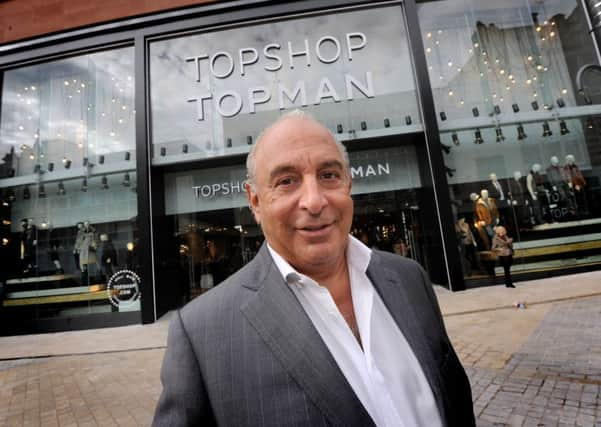Stewart Lansley: Sir Philip Green and BHS: A business predator, but no entrepreneur


The award was highly controversial at the time. Why, it was repeatedly asked, was one of Britain’s most prodigious and high profile tax-avoiders, one with big question marks over his business methods, being awarded one of its highest honours?
Sir Philip Green is a microcosm of many of the deep-seated problems associated with modern financial capitalism. He is not a founding entrepreneur, taking large personal financial risks to build durable companies from scratch in the style of earlier retail and business giants such as those who founded M&S and Sainsbury’s. Those businesses he created in his early career went nowhere. Many ended with a trail of debt.
Advertisement
Hide AdAdvertisement
Hide AdRather he made money – big money – by turning himself into a business predator, earning a reputation as the ‘Barbarian’ of the high street. He has not built market share but bought into it. His multi-billionaire fortune came through cut-throat trading in existing companies.
He helped pioneer many of the business practices that have become so rife – and damaging in their wider impact – over the last 20 years. They include the leveraged buy-out, the private equity revolution, the financial manipulation of balance sheets, the massive personal dividends paid for by borrowing.
His has amassed wealth through financial engineering, squeezing small suppliers, loading companies with debt and tax avoidance. The same is true of the wider personal wealth boom of recent times. The surge in inequality since the 1980s is largely the product of the application of similar business methods aimed at capturing existing business wealth for a small financial elite, often at the expense of staff, suppliers and the taxpayer, rather than building economic strength for the long term.
BHS exemplifies these methods. Green turned the company around initially, not by improving its image and boosting sales, but by a war on costs and suppliers. When profits initially rose, Green was quick to claim a successful turnaround. But without strengthening the underlying business, BHS was always heading for a slow death, and Green had neither the tools nor the inclination, apparently, to prevent this descent. Indeed, he started looking for buyers for BHS as early as 2005. Nobody wanted it because there was little else to squeeze. By 2008, it had become loss-making.
Advertisement
Hide AdAdvertisement
Hide AdThe Philip Green story tells us much about the growing fragility of the inequality-driving, under-investing and growth sapping British economy. In the last 30 years, Britain has become one of the lowest-paid, lowest-productivity economies amongst rich nations, one driven by a self-destructive business model that prioritises short-term bucks to owners rather than long-term resilience.
Should Sir Philip’s knighthood be rescinded? Giving Green such a coveted honour – one of only five citizens to receive it – was, in many ways, a sign of the time. The British economy was booming (artificially) and the Blair government was engaged in a long love-affair with the City. Such honours should be given for exceptional contributions, but Green would not rank highly in the pantheon of British entrepreneurs, past or present.
He has no shortage of business acumen. But he has used his undoubted skills to serve his own personal ends whatever the consequences. There will be little in the way of lasting legacy.
Whether or not MPs vote to strip Sir Philip of his knighthood, we must learn the wider lessons of his business practices, ones that are now so commonplace. Old-style entrepreneurship that manages for the long-term – not short-term personal gain – needs to be encouraged.
Advertisement
Hide AdAdvertisement
Hide AdWe need much tighter rules over takeover deals and over the ability of owners of private companies to finance huge dividend payments to themselves through borrowing. Under existing business law, owners can argue that they have a legal duty to serve the interests of shareholders irrespective of the impact on staff, customers or wider society.
Sir Philip Green pioneered a revolution in business methods, mostly for the worse. That revolution now needs to be reversed.
Stewart Lansley is the co-author (with Andy Forrester) of Top Man: how Philip Green built his high street empire.